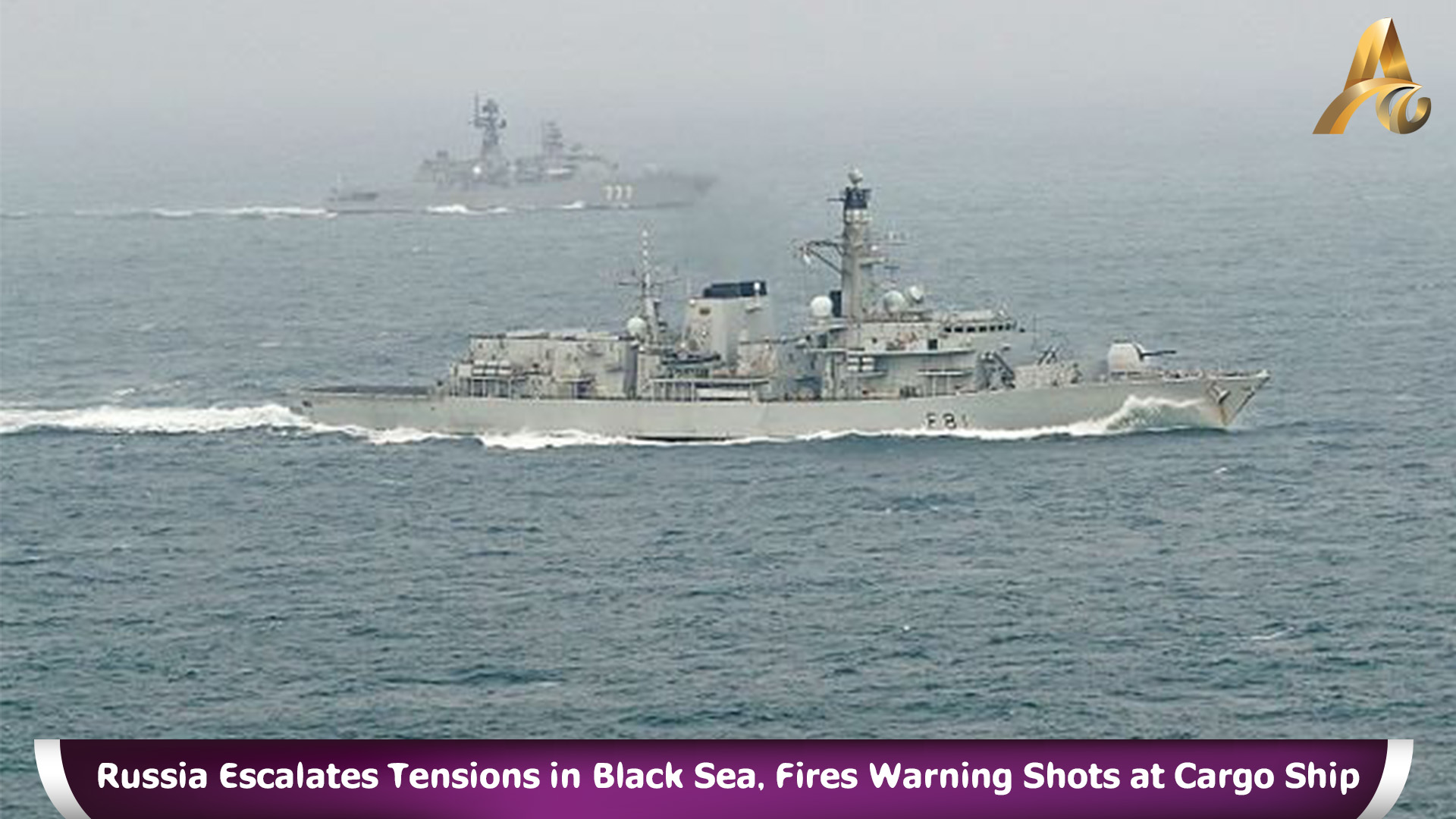Moscow: 14 August - A recent incident in the Black Sea has heightened tensions as a Russian warship reportedly fired "warning shots" at a cargo ship that failed to respond to demands to stop. The Russian government stated that crew members on a patrol ship opened fire with automatic weapons after the cargo vessel, allegedly en route to the Ukrainian port of Izmail, ignored a request to halt for inspection on Sunday.
This occurrence follows Russia's announcement last month that it could no longer assure the safety of vessels in the Black Sea after withdrawing from an international agreement aimed at facilitating the secure export of grain from Ukraine.
International shipping data revealed that the cargo ship had been located in the southwestern region of the Black Sea, near the coast of Bulgaria. It seemed to indicate its trajectory toward the Romanian port of Sulina, in close proximity to the Ukrainian border.
The cargo ship, identified as the Sukru Okan and flying the flag of Palau, eventually complied with the "warning shots," with no reports of damage or casualties. Subsequently, the Russian defense ministry reported that its military personnel boarded the ship using a Ka-29 helicopter to conduct an inspection.
After the inspection concluded, the Sukru Okan resumed its course toward the port of Izmail. Meanwhile, a spokesperson from the Turkish defense ministry acknowledged the incident involving the ship heading for Romania and confirmed that officials were investigating.
Ukraine and its allies have accused Russia of employing these warnings as a de facto blockade of Ukrainian ports, potentially disrupting the export of vital agricultural products such as wheat and sunflower seeds to global markets. Russia, in response, rejected these claims and accused Western nations of not implementing a parallel agreement aimed at easing restrictions on their own food and fertilizer exports.
This incident could exacerbate concerns within the shipping industry about the challenges of conducting business in the region. Any disruptions to shipping routes may reverberate through global supply chains, affecting prices and availability of essential goods.
While tensions escalate, Ukraine's response remains to be seen, as experts assess the incident's implications for international maritime law and diplomatic relations in the Black Sea region.























